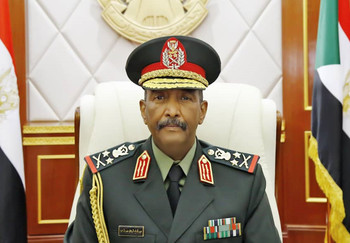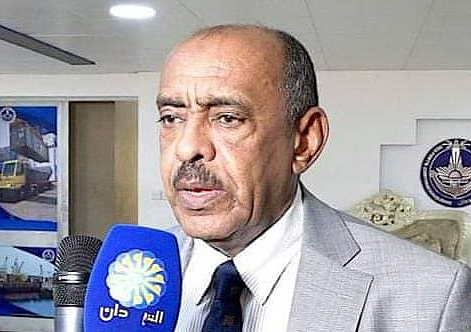El Burhan fires Sudan’s Foreign Minister, governors of Kassala and El Gedaref

Chairman of Sudan’s Sovereignty Council and Commander of the Sudan Armed Forces Lt Gen Abdelfattah El Burhan (File photo: SUNA)
Lt Gen Abdelfattah El Burhan, commander-in-chief of the Sudanese Armed Forces (SAF) and head of Sudan’s Sovereignty Council, has dismissed and replaced Foreign Minister-designate Ali El Sadig, as well as the governors of Kassala and El Gedaref, Mohamed Mousa and Mohamed Abdelrahman.
Speaking to Radio Dabanga, reliable sources attribute the dismissal of the governor of Kassala to escalating disagreements with Sayed Tirik, head of the mainstream High Council of Beja Nazirs and Independent Chieftains.
In a press conference on Tuesday, Nazir* Tirik declared his refusal to implement any decisions by the Kassala governor and suspended all cooperation with the state government. He called on the central government to dismiss Mousa immediately.

(File photo: SUNA)
Mousa, in turn, dismissed the native administration’s** interference in administrative affairs in the state.
Similarly, sources suggest that that the dismissal of Mohamed Abdelrahman, governor of El Gedaref, came against the backdrop of his disagreements with the El Bawadra tribe, in addition to ongoing confrontations between Sudanese Armed Forces personnel and local forces in the state.
The three officials allegedly have strong links with the Islamic Movement in Sudan.
In his decree, El Burhan appointed Retd Maj Gen El Sadig El Azrag as governor of Kassala, Retd Maj Gen Mohamed Ahmed Hasan as governor of El Gedaref, and Ambassador Hussein Awad as Minister of Foreign Affairs.
* A nazir is a state-appointed administrative chief of a tribe, according to the native administration system in Sudan.
** The Native Administration was instituted by British colonial authorities seeking a pragmatic system of governance that allowed for effective control with limited investment and oversight by the state. The state-appointed native administration leaders also took on new responsibilities such as executing policies, collecting taxes, and mobilising labour on behalf of the central government. According to the Darfur Bar Association (DBA), Sudan’s native administration during the 30-year rule of dictator Omar Al Bashir did not represent the real community leaders.











 and then
and then